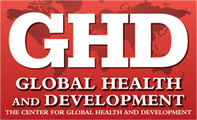WHEN envisions a future where women in emerging markets have improved health outcomes and increased economic empowerment through targeted impact investments and sustainable business model development. By addressing the intersectionality of women’s health and economic well-being, we aim to create sustainable change that uplifts communities and fosters inclusive development.
Identification of High-Impact Areas:
- Engage in comprehensive research to identify key areas within emerging markets where women’s health and economic empowerment are interlinked and present significant opportunities for impact.
- Collaborate with local experts, governments, and community leaders to understand the unique challenges and opportunities in each target region.
Strategic Investment Portfolio:
- Develop a diverse portfolio of impact investments that align with WHEN’s mission, focusing on ventures that contribute to both women’s health and economic empowerment.
- Prioritize investments in sectors such as healthcare, education, sustainable agriculture, and entrepreneurship, ensuring a holistic approach to addressing the multifaceted needs of women.
Capacity Building and Skill Development:
- Facilitate programs that enhance women’s skills, knowledge, and capabilities, fostering entrepreneurship and employability.
- Collaborate with local organizations to provide training in areas such as financial literacy, healthcare, and technology, empowering women to actively participate in the workforce and local economies.
Healthcare Access and Awareness:
- Invest in initiatives that improve access to quality healthcare services for women in target regions.
- Implement community-based awareness programs to promote health education, breaking down cultural barriers and empowering women to make informed decisions about their well-being.
Technology and Innovation:
- Leverage technology to bridge gaps in information and access, facilitating the delivery of healthcare services and economic opportunities to remote areas.
- Support and invest in innovative solutions that address challenges unique to women in emerging markets, promoting sustainable and scalable models.
Monitoring, Evaluation, and Learning:
- Establish a robust monitoring and evaluation framework to assess the impact of investments on women’s health and economic empowerment.
- Regularly gather feedback from beneficiaries and local stakeholders, adapting strategies based on lessons learned to continually enhance the effectiveness of interventions.
Advocacy and Partnerships:
- Advocate for policy changes that promote gender equality, women’s rights, and economic inclusivity in collaboration with local and international partners.
- Forge strategic partnerships with governments, NGOs, and other impact organizations to amplify the reach and impact of WHEN’s initiatives.
Scaling for Sustainable Impact:
- Identify successful models and interventions, scaling them across different regions to maximize impact and create a ripple effect of positive change.
- Continuously seek opportunities for replication and expansion, collaborating with a network of stakeholders committed to advancing women’s health and economic empowerment.
- Assists and partners with governments to structure and source investment from traditional and non-traditional donors.
- Comprised of trusted organizations, connecting international and local stakeholders to create a global network of partners committed to improving women’s health and economic empowerment.
- Leverages best practices and approaches from previous initiatives and sharing learnings across countries.
- Provides strategic guidance to investment and private sector partners, with the ability to streamline partner investments to maximize the impact of health and economic empowerment services.
- Experts in structuring sustainable financing mechanisms, designing business models, and strengthening referral pathways for global development goals, with cumulative experience working for development finance institutions, national governments, development finance institutions and others.
- Flexibility to invest in the entire ecosystem of women’s health and economic empowerment.
- Cross-sectoral expertise with members from government, academia, private sector, investors, DFIs, and multilaterals.
- Female Entrepreneurship: Supporting and funding women-led businesses and start-ups, particularly in sectors with growth potential.
- Access to Quality Healthcare: Investing in projects that enhance women’s access to quality, end-to-end healthcare, including primary, secondary and tertiary care.
- Financial Inclusion: Promoting economic empowerment by fostering access to financial services and opportunities for women.
- Skills Development: Supporting initiatives that provide women with the skills and training needed to excel in various industries including agricultural, medical, manufacturing and more.
Skills Development:
- Education: Investing in programs that promote women’s education and improve their access to educational resources.
- Health Technologies: Backing innovations in digital health, telemedicine, and healthcare technologies that benefit women.
- Innovation and Research: Supporting research and innovation in women’s health and economic advancement.
- Access to Clean Energy: Investing in sustainable energy solutions that empower women and contribute to economic development, such as solar power for hospitals.
- Microfinance and Health Insurance: Supporting financial mechanisms that cater to the unique needs of women in emerging markets.
- Infrastructure Development: Backing projects that enhance healthcare and economic infrastructure for women.
